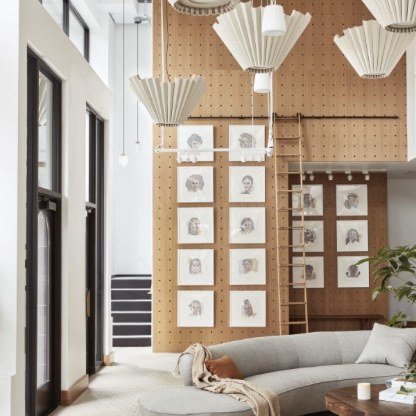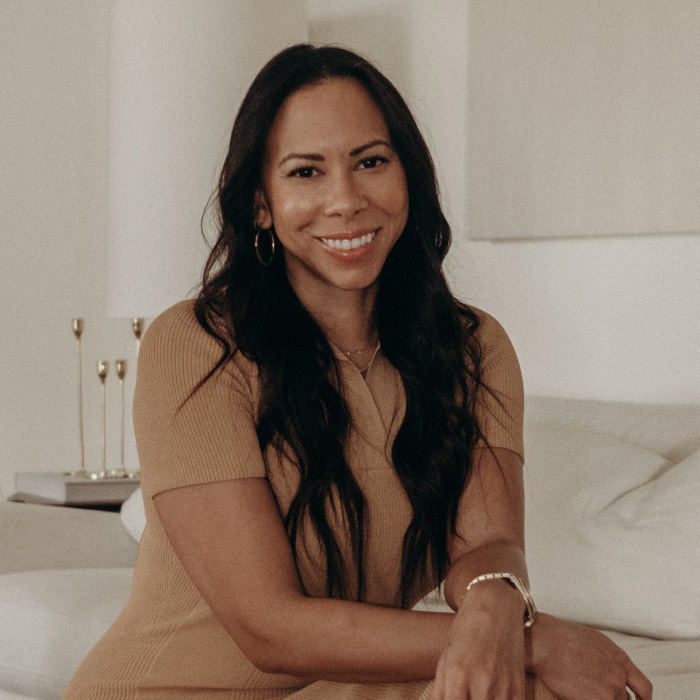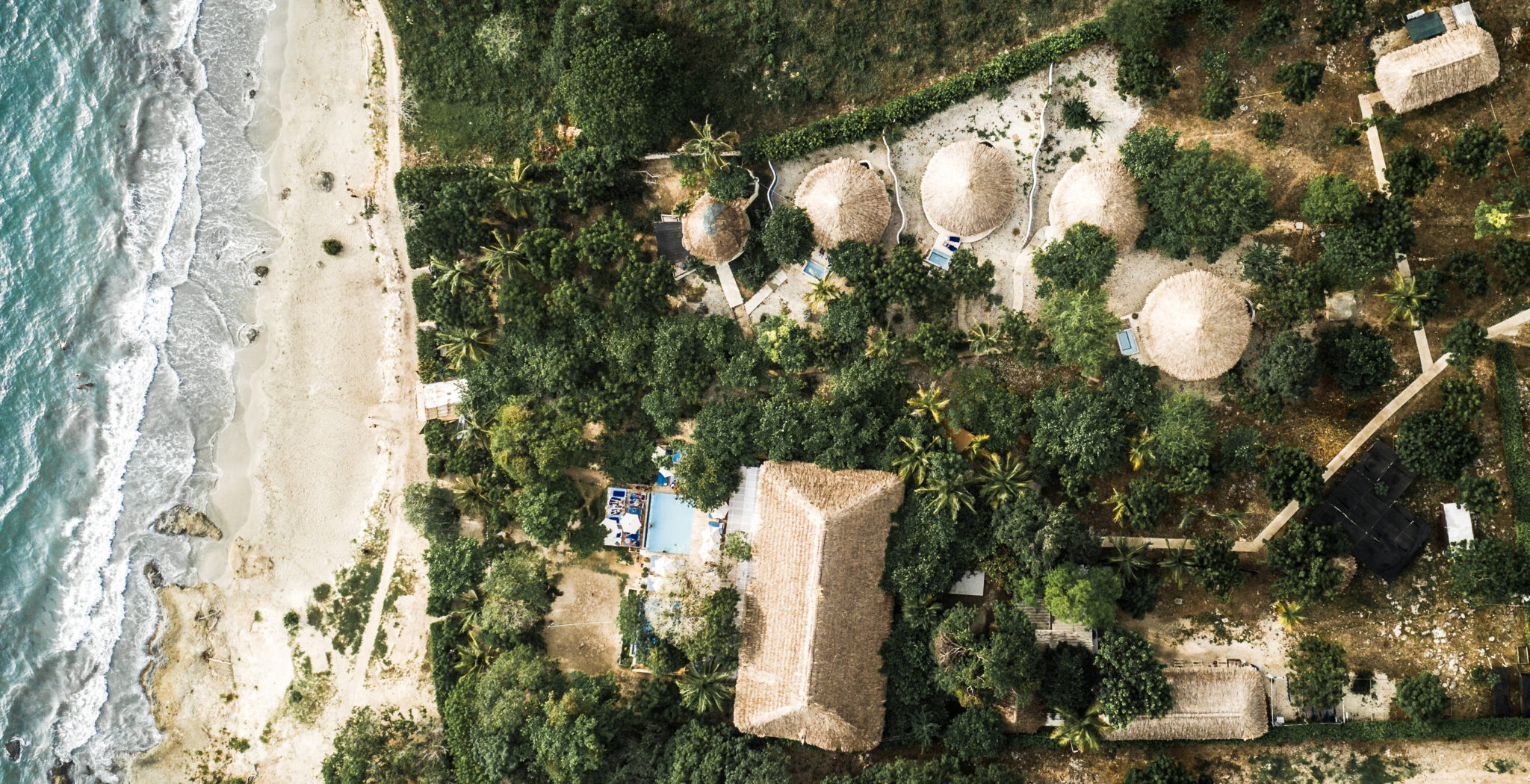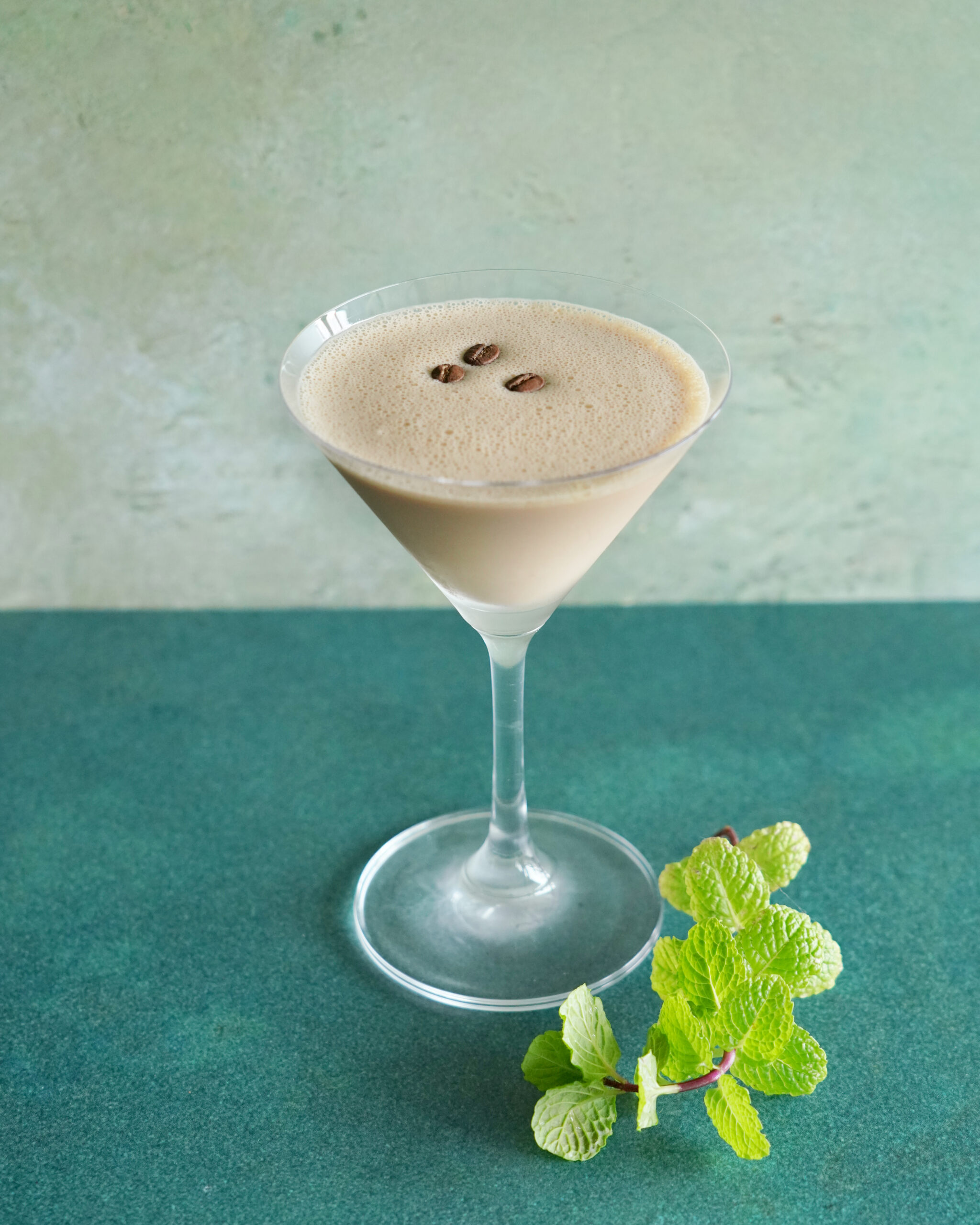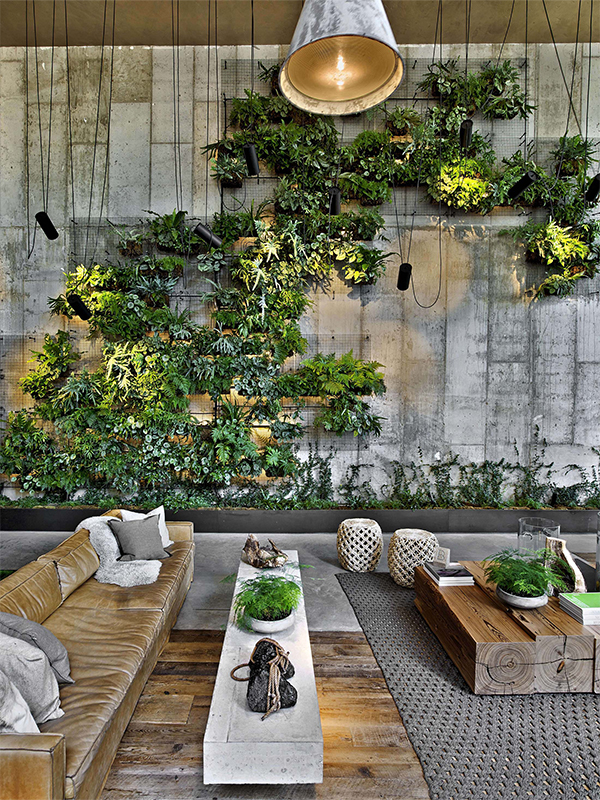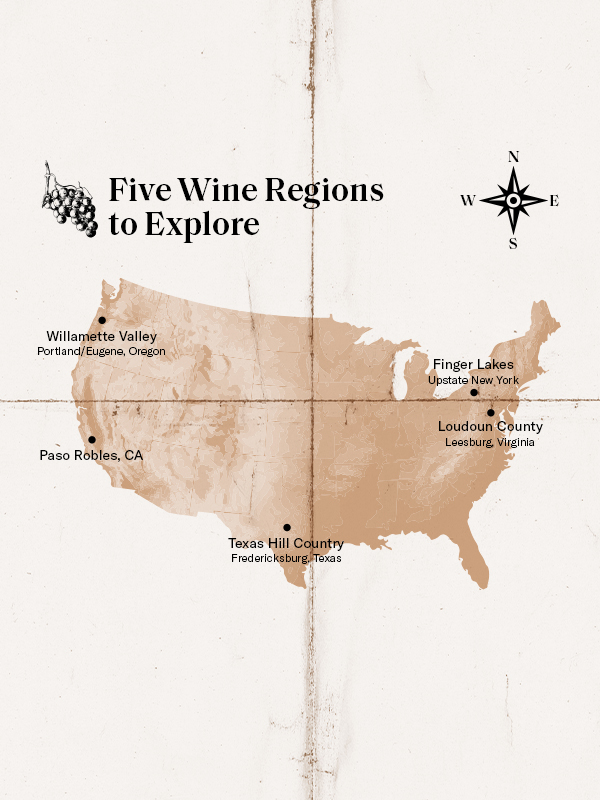The story of how Portia Hart’s 11-room boutique hotel, Blue Apple Beach, located 20 minutes from Cartagena, Colombia, came to be is one she tells with pride. After all, the journey was the impetus for her becoming the sustainability advocate she now is in the hospitality industry.
It’s a path she didn’t see coming. “I came to Cartagena originally thinking this would be a good place for me, because I wanted to live in the Caribbean,” Hart tells Sweet July. “I wanted to get to know that cultural side of my heritage. I also really wanted to learn Spanish.”
But when she got there in late 2014, after leaving her job with a yacht brokerage firm, Hart found that the beach accommodations were lacking, so the British-Trinidadian entrepreneur ultimately decided to pair her marketing experience with her knowledge of what travelers like herself desired in a water-front hotel and opened her own establishment.
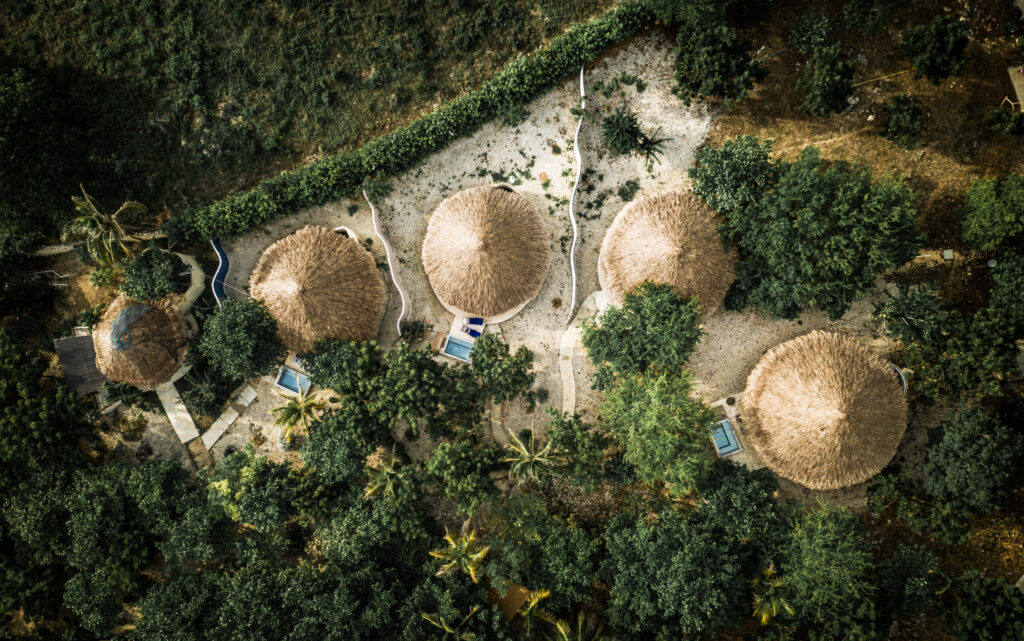
Blue Apple Beach officially opened in 2016 and was the physical manifestation of Hart’s dreams: a luxury Ibiza-style club where guests could enjoy delicious food and drink, a beautiful beach backdrop and dreamy accommodations.
“We have this mantra that a blue apple is an impossible fruit and we’re an impossible business,” says Hart. “When we opened this place, everyone said to us, ‘It’s not gonna work. What you’re trying to do is too ambitious.’ But here we are.”
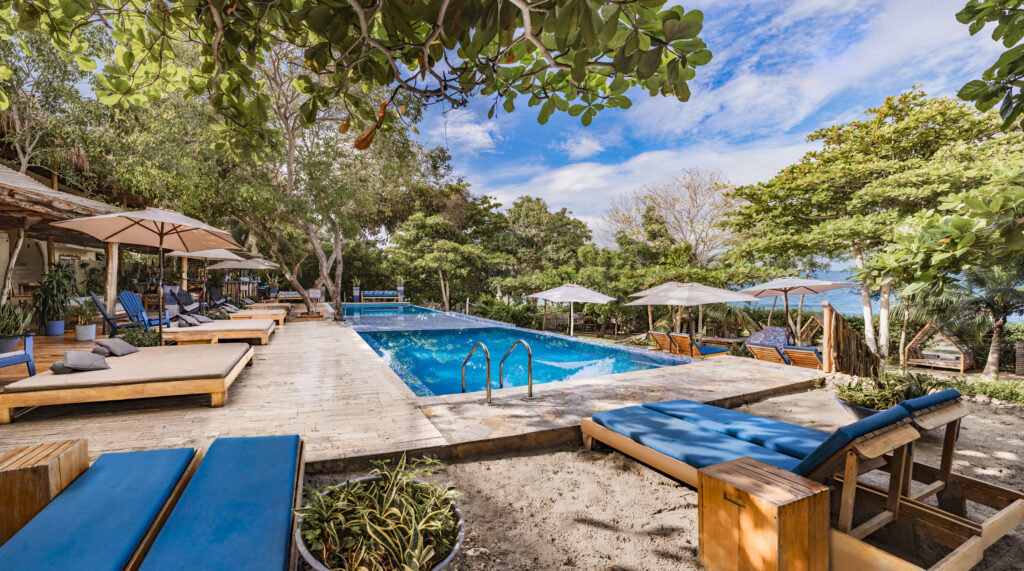
After a year in operation, Hart came to a stark realization about her dream property: “I realized that every time we threw something in what we thought was the trash, it was ending up in somebody else’s backyard.” She became determined to position her establishment as one that was not just a coveted travel destination, but enhanced the community it had become a part of. To that end, Hart began a year-long process of pivoting towards environmentally friendly practices like installing solar panels, conserving electricity usage, using water more mindfully and exploring ways to recycle trash. As a result, she gained a greater understanding of how sustainability impacted not just the planet, but the people who inhabit it.
“I saw the impact of social inequality and how that is so intrinsically linked with environmental care,” says Hart. “For us, quite quickly, operating in a way that elevated the community and the people working with us in order to get them to a level where they could contribute and participate in our environmental efforts was key.”
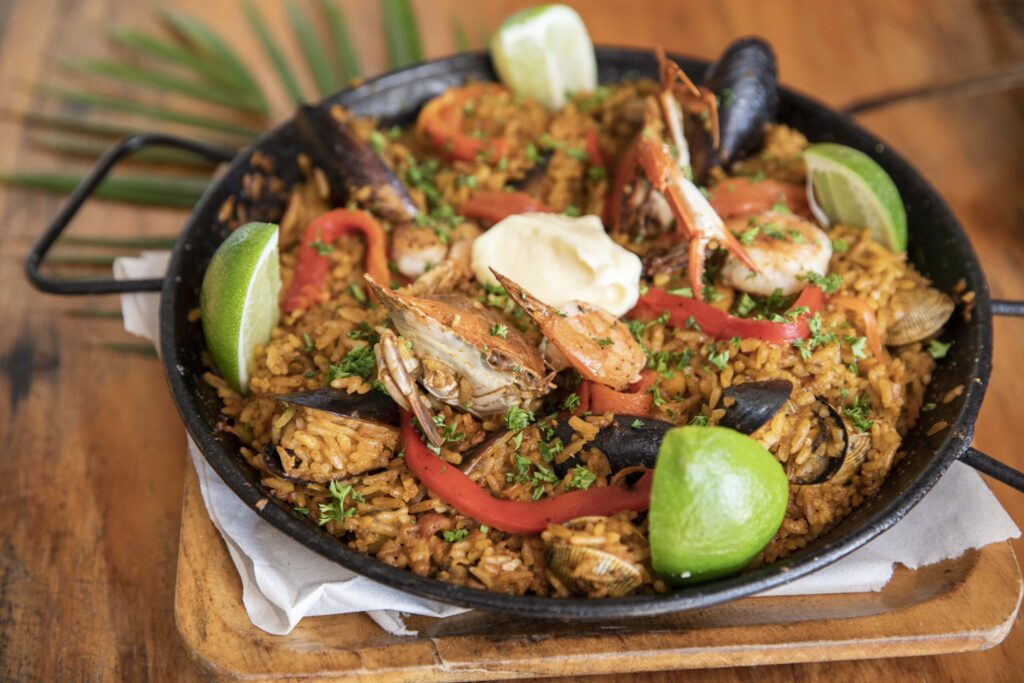
The realizations didn’t stop there. In 2017, after hiring an environmental engineer to assist her with setting up trash recycling programs onsite and train staff, Hart learned that a huge part of maximizing her hotel’s sustainability efforts was figuring out a way to recycle the property’s biggest waste product: glass. Although Cartagena had a good recycling program in place for cardboard, plastic and metals, none existed for glass.
To solve this problem, Hart went to work and found a beer company in New Zealand that was crushing its own bottles and turning them into sand. A grant allowed Hart to purchase bottle recycling machines, and before long, other bar owners and restaurants in the area were following suit and recycling their glass as well. To date, Hart says this initiative has diverted over 260 tons of waste from landfills. It also spawned the non-profit branch of her business, the Green Apple Foundation, which supports recycling efforts throughout the city.
Hotel guests can get in on the action and experience glass recycling firsthand by either grinding their beverage bottles into sand or working with an onsite artisan to create the perfect eco-friendly keepsake: a two-piece vase that allows you to change the water of your flowers without removing them from the actual vase. In addition to this glass recycling experience, Blue Apple also allows guests to visit its kitchen’s garden to pick fresh herbs and learn about food chains and sourcing by visiting the property’s live animals.
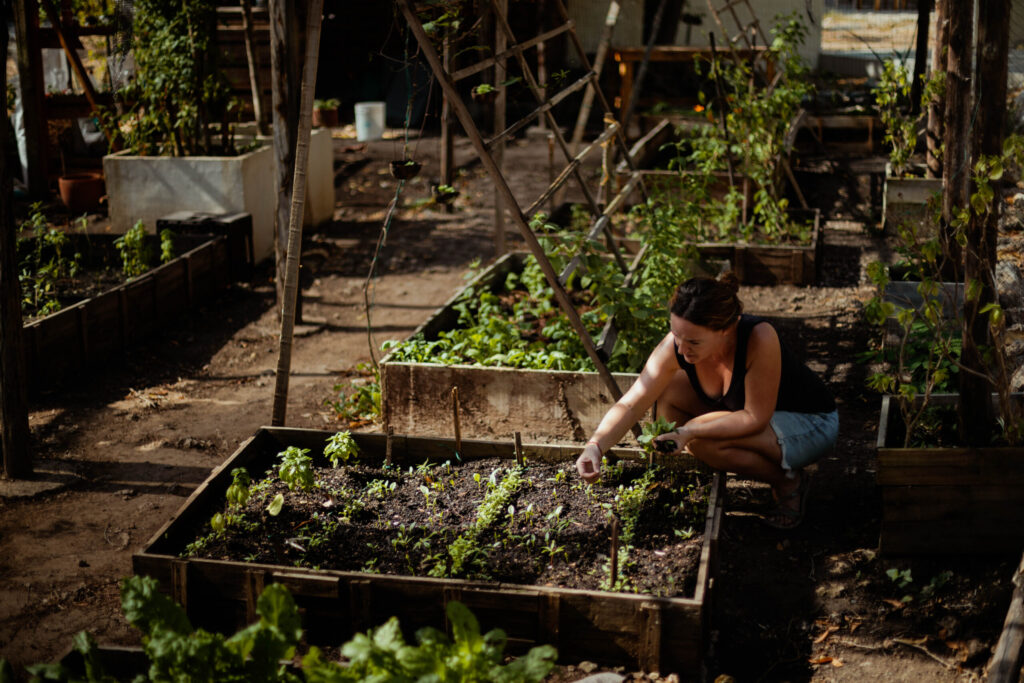
Hart says Blue Apple is well on its way to becoming a zero-waste hotel: Currently, 50 to 60 percent of the hotel’s power is solar-generated. Its wastewater management system has proven to be effective, and it has also successfully maintained a single-use/plastic-free program. In addition, only sustainably and ethically sourced animal proteins are used at the property, which has earned certified B-Corp status.
Blue Apple also holds the distinction of being the first hotel/bar in Cartagena to use paper straws (Hart started this back in 2017 by purchasing straws from the United States). But since then, a paper straw company, Promociones Fantasticas, has emerged in Colombia—a testament to the country’s growing sustainability efforts. “It’s such a tiny example,” says Hart, “but I think it does show that small changes made by one small business can kind of really [impact] a wider society or community. And it does not have to be huge. You can start small and grow.”
Hart’s work proves that sustainability within hospitality is attainable. She wants business owners to know that supporting these practices is good for their bottom line, as well. “My businesses are healthier, my community is stronger, my professional reputation is enhanced,” says Hart. “And I just can’t imagine running my businesses or living my life in any other way, because it would be to my own detriment as well. So I would say, if nothing else, be selfish. Do it because it’s good for you, and don’t feel bad about it.”
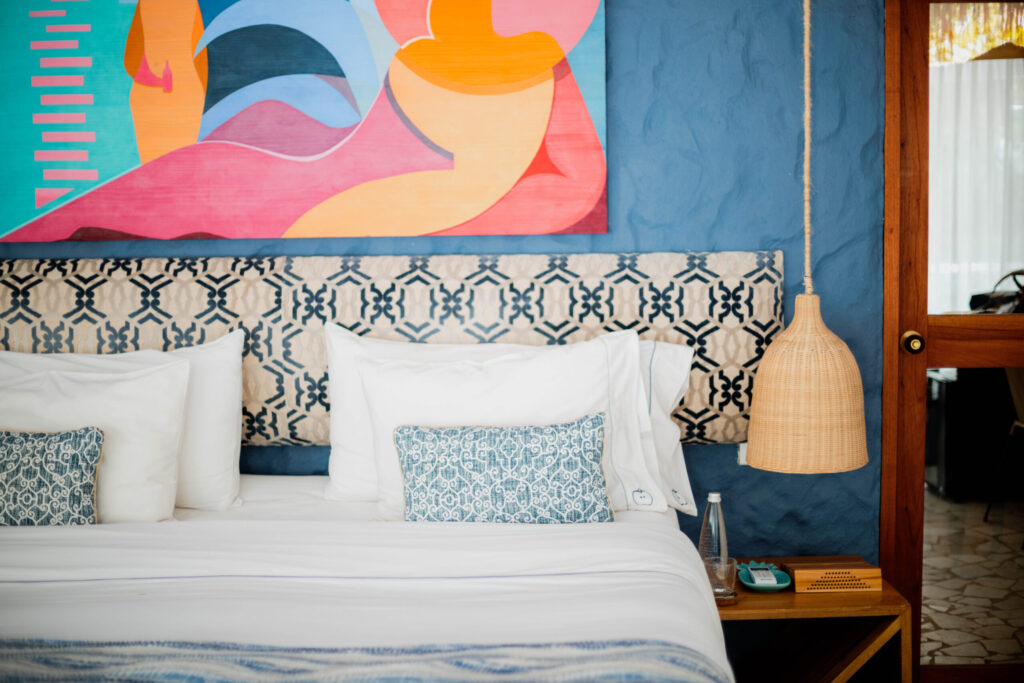
The Green Apple Foundation presently supports the off-property processing of roughly 2 percent of central Cartagena’s used and discarded glass waste and aims to increase that capacity to 50 to 70 percent.
Hart’s continuing to think big—far beyond the walls of her beautiful resort. “The idea is to create a municipal glass recycling plant using the know-how that we have gained over the last five years [and] to be able to have an impact that goes way beyond my business, way beyond the 20 businesses that we work with now—that actually affects an entire city,” says Hart. “Because I think that is a way cooler legacy to leave than just making my hotel a bit bigger.”

